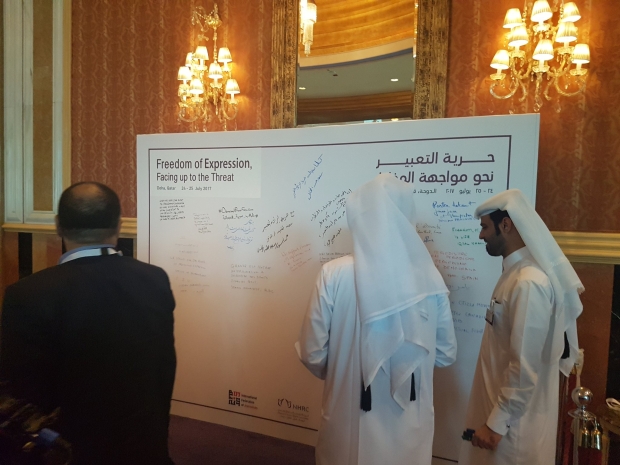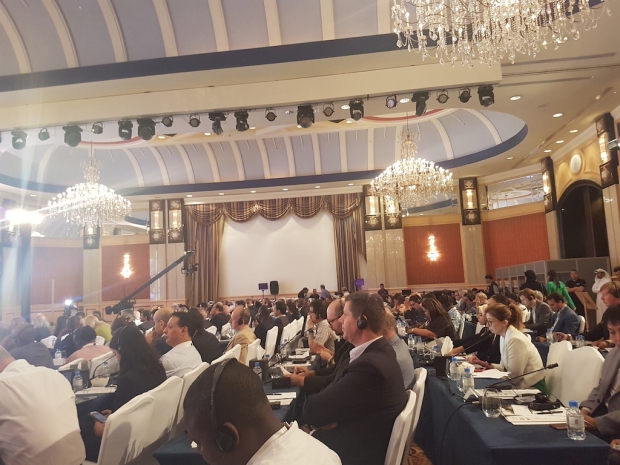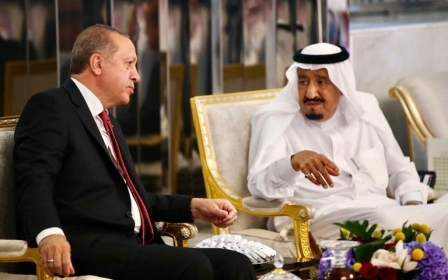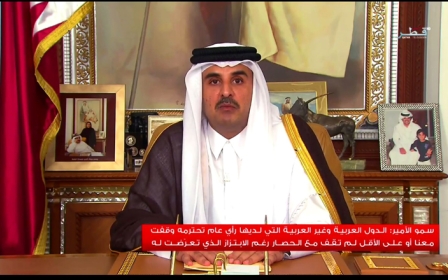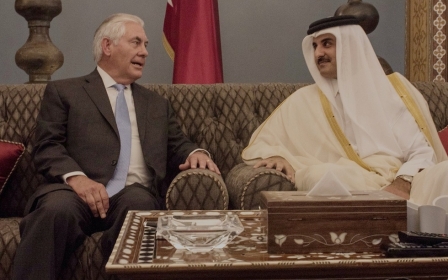Al Jazeera head backs 'some form' of trade union in Doha
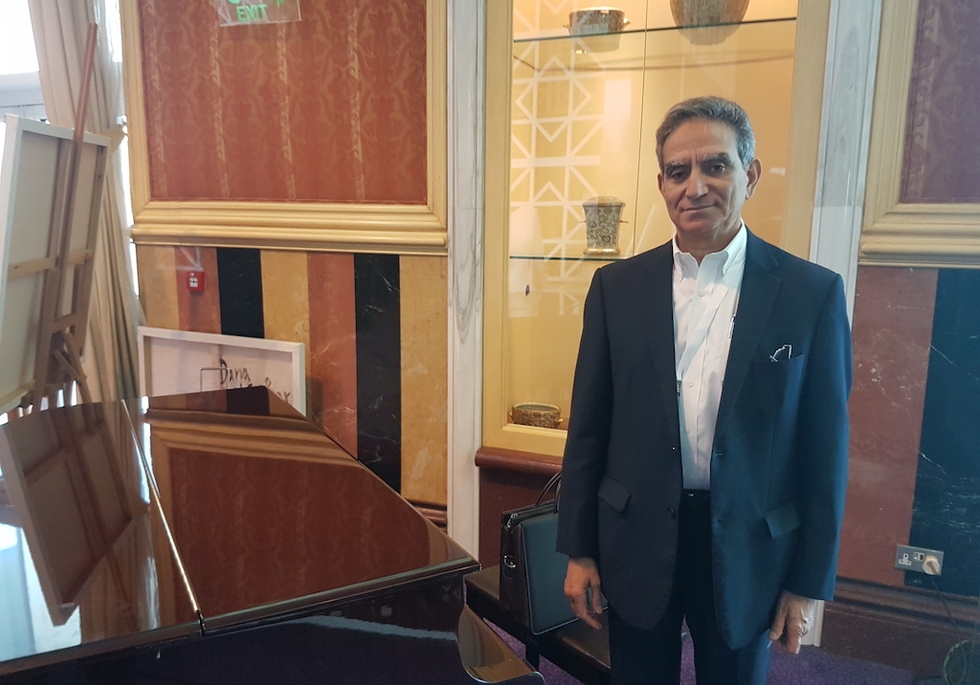
DOHA, Qatar - The acting director general of Al Jazeera said he would support the creation of "some form" of trade union within his organisation, despite Qatar's long-standing hostility to organised workforces.
Mostefa Souag made the comments to Middle East Eye on the fringe of a conference in the capital Doha aimed at discussing and promoting freedom of expression and defending Qatari media outlets against attacks by its neighbours.
"Of course, I do," he said. "I would like to see some form of a union. Some form of a grouping, something that will allow Al Jazeera [staff] to express their concerns and discuss things with the management, that would make life much easier.
"I hope that will happen."
He remarks follow repeated calls at the "Freedom of Expression, Facing up to the Threat" conference by human rights activists and media campaigners for Al Jazeera to allow unions.
Dozens of journalists and trade unionists from around the world turned out as delegates to the Ritz Carlton hotel in Doha for the conference, which is hosted by the Qatari National Human Rights Commission, a state-backed human rights organisation.
While the conference nominally focused on the demand by Saudi Arabia, UAE and others that Al-Jazeera be closed in order to lift a months-long blockade against Qatar, many delegates used the opening sessions of the conference as a platform to demand reform in Qatar.
Daoud Kuttab, a Palestinian-Jordanian journalist and director of the Community Media Network, said that while he was a major supporter of Al Jazeera's journalism, the workers at the company "need the right to establish their own journalists union."
"Unity is a two-way street," he explained. "As friends we need to be honest with each other."
"We need to continue to show unity and solidarity and at the same time our media needs to be very professional," he added.
Kenneth Roth, director of Human Rights Watch, told the conference he believed that Al Jazeera had been a major force in the region to "challenge the autocratic rule that remains the norm in most of the Middle East".
However, he criticised Qatar's internal repressive tendencies, citing the case of Doha News, a domestic news site that was blocked by Qatar in December.
Delegates and speakers also called for Al Jazeera to be defended against outside threats and also more generally for solidarity to be shown with journalists around the world who faced persecution and repression.
Mostefa Souag said that he believed the Middle East would be a totally different place today without the work of Al Jazeera.
"Al Jazeera has, I believe, made a difference in terms of making people aware of the importance of the freedom of the media, freedom of expression, it's shown people that it's possible to discuss issues, to enter into a dialogue without being enemies, without fighting each other," he told MEE.
"I believe it has made difference in how aware people are in terms of their human rights, especially their right to know, their right to knowledge, their right to information. This is Al Jazeera."
A number of speakers also called on the emir of Qatar, Sheikh Tamim bin Hamad al-Thani, to raise the issue of imprisoned journalists with Turkish President Recep Tayyip Erdogan, who was visiting the country on Monday as a means of showing solidarity with beleaguered Qatar.
On Monday, 17 journalists from Turkey's opposition Cumhuriyet newspaper went on trial after they were accused of supporting a terrorist group and waging "asymmetric war". Dozens of other journalists have faced similar charges.
Roth slammed Turkey as the "world's largest jailer of journalists" and said it was vital the emir brought Erdogan to task on the issue.
Middle East Eye propose une couverture et une analyse indépendantes et incomparables du Moyen-Orient, de l’Afrique du Nord et d’autres régions du monde. Pour en savoir plus sur la reprise de ce contenu et les frais qui s’appliquent, veuillez remplir ce formulaire [en anglais]. Pour en savoir plus sur MEE, cliquez ici [en anglais].


